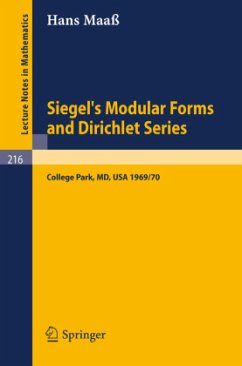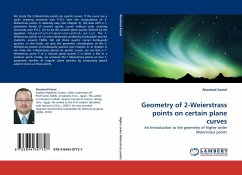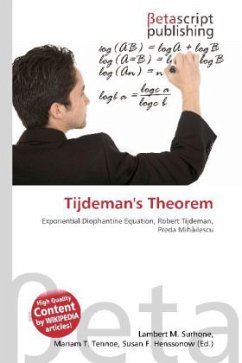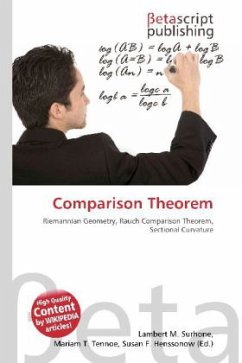
Siegel's Theorem on Integral Points
Versandkostenfrei!
Versandfertig in 6-10 Tagen
19,99 €
inkl. MwSt.

PAYBACK Punkte
10 °P sammeln!
High Quality Content by WIKIPEDIA articles! In mathematics, Siegel's theorem on integral points is the 1929 result of Carl Ludwig Siegel, that for a smooth algebraic curve C of genus g defined over a number field K, presented in affine space in a given coordinate system, there are only finitely many points on C with coordinates in the ring of integers O of K, provided g 0. This result covers the Mordell curve, for example. This was proved by combining a version of the Thue Siegel Roth theorem, from diophantine approximation, with the Mordell Weil theorem from diophantine geometry (required in ...
High Quality Content by WIKIPEDIA articles! In mathematics, Siegel's theorem on integral points is the 1929 result of Carl Ludwig Siegel, that for a smooth algebraic curve C of genus g defined over a number field K, presented in affine space in a given coordinate system, there are only finitely many points on C with coordinates in the ring of integers O of K, provided g 0. This result covers the Mordell curve, for example. This was proved by combining a version of the Thue Siegel Roth theorem, from diophantine approximation, with the Mordell Weil theorem from diophantine geometry (required in Weil's version, to apply to the Jacobian variety of C). It was the first major result on diophantine equations that depended only on the genus, not any special algebraic form of the equations. For g 1 it was in the end superseded by Faltings' theorem.












